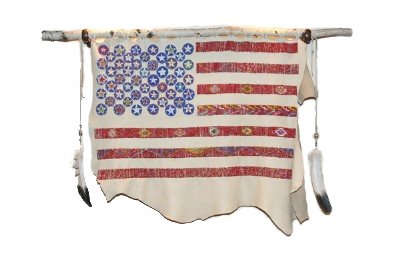Column for 1 July, 2007
“I will walk about in freedom, for I have sought out your precepts. I will speak of your statutes before kings and will not be put to shame, for I delight in your commands because I love them.”
--Psalm 119:45-47
One of my favorite musicals is “1776.” I’m not sure why; certainly, I like the portrayals of the Founders as real human beings and not demigods—Jefferson pines for his wife; Benjamin Franklin is a sly, savvy manipulator; John Dickinson is a money-obsessed conniver; Richard Henry Lee is a pompous blowhard. Or maybe I just identify with John Adams, who’s “obnoxious and disliked, that cannot be denied.” In addition to showing (more or less accurately) the delegates to Philadelphia warts and all, “1776” also reveals that the Declaration of Independence was a product of something that is in short supply in current American politics, the art of compromise. Each of the delegates represented colonies and factions with sometimes wildly divergent interests. Radicals like Adams and Franklin favored immediate independence; moderates like Dickinson hoped for reconciliation with the Crown. Others, particularly from the Southern Colonies, feared that an independent America would encroach on their “rights,” more particularly, the right to own other human beings as property. And that led to the first (and ultimately most fateful) compromise. It is fairly well-known that Thomas Jefferson’s original draft of the Declaration included language condemning the King for slavery: He has waged cruel war against human nature itself, violating its most sacred rights of life & liberty in the persons of a distant people who never offended him, captivating & carrying them into slavery in another hemisphere, or to incur miserable death in their transportation thither. This passage is, in and of itself, hypocritical, as it conjures the image of the evil King forcing slavery upon unwilling Americans. To Jefferson’s eternal consternation, the entire passage was removed by “representatives” who were all white, all male, included numerous slaveowners and were, if not all rich, certainly none of them poor. Yet, if the section had remained, none of the Southern colonies would have signed. And without the South, the Revolution would have died in its infancy. Even with the colonies united, Britain was only defeated militarily due to the intervention of France. In the musical, Edward Rutledge of South Carolina points out a further hypocrisy, the smug-self righteousness of the Northern Colonies when they too profited from the slave trade. “Hail Boston! Hail Charleston! Who stinketh the most?” All of America was tainted from the moment of its conception by slavery, considered by Abraham Lincoln the nation’s original sin. And, as Adams gloomily predicted, the country very nearly destroyed itself before this fundamental contradiction (a democracy where large portions of the populace were held to be less than human) was resolved on the battlefield. Sadly, there was no real controversy over another passage: He has excited domestic insurrections amongst us, and has endeavoured to bring on the inhabitants of our frontiers, the merciless Indian Savages whose known rule of warfare, is an undistinguished destruction of all ages, sexes and conditions. Of course, at the same time the Continental Congress was adopting this language, they were pleading for assistance with various tribes, even offering statehood to the Lenape (Delaware). None of that mattered, in the final analysis. Tribes that sided with the British (like the Cherokee) were treated exactly the same as tribes that supported the Patriots (such as the Oneida, who carried corn to feed the Continental Army during its horrible winter at Valley Forge). Just as America was founded on Slavery, so, too was it founded on the wholesale theft of land from the original inhabitants. In another irony of history, if the British had made better use of their Indian allies, like the brilliant Mohawk leader Thayendanegea (Joseph Brant), they would have won the war. In a very real sense, America owes its existance to the Indians. But, as my old Civil War and Reconstruction professor used to say, history is not written in the subjunctive. For all its moral equivocation, the mere fact of America’s creation and continued existence transformed the world in a still-ongoing global democratic revolution. And so, while the ends do not necessarily justify the means, before we condemn the decisions the Founders made, we should frankly evaluate the results of those decisions. And, to paraphrase Nietzche, as we gaze into history, history gazes back at us. If we arrogate to ourselves the moral authority to judge the Founders, we must also judge ourselves and our stewardship of the Revolution. What have we done to justify their risk of their lives, their fortunes and their sacred honor? What have we, personally, done to correct the errors in judgment we can see like motes in the eyes of our ancestors, while ignoring the beams that cloud our own vision. Tellingly, fittingly, “1776” ends with the signing of the Declaration. George Washington has just announced that a large enemy force is advancing on Philadelphia and he is helpless to stop it. As the bells toll, one by one each delegate comes forward and affixes his name to a document that could easily have been his death warrant, the Crown’s Exhibit “A” at a mass treason trial just before the gruesome executions that would inexorably have followed. This is what is so striking about that scene, as the final curtain falls: we realize that the Founders did not know, could not know, that they would succeed. They had no idea if their grand and unprecedented experiment would end in liberty or death. They had only their faith in the future. May we be worthy of their trust. God bless America.
Labels: Column


1 Comments:
Excellent history lesson.
Post a Comment
<< Home